
Have you been left scratching your head over a tax bill after filing your federal tax return?
Do you want to ensure your tax bill is correct and not pay more than what you owe on your tax return?
If your answer is yes to any of the questions above, we’re here to tell you – you’re not the only one. It’s a common dilemma many US taxpayers face.
When you earn money in the US, the Internal Revenue Service usually expects you to pay taxes.
And the number of allowances you report on a W-4 form, which we’ll discuss later, will determine your tax refund and take-home pay. If you claim zero allowance, your employer will withhold the maximum possible amount.
This guide will help you understand why you owe taxes when you claim a zero allowance. But before that, it may help to learn the concept of allowances and tax withholding.
Tax Allowances At a Glance
Tax allowances or withholding allowances reduce the amount of money withheld from your paycheck.
Whenever you receive a paycheck from your employer, the latter will withhold a part of it to pay for taxes. That way, you pay taxes gradually throughout the year rather than owing a large sum in a tax season.
This option is convenient, ensuring you pay the correct taxes when the time comes. In most states, employers do this for their employees. People who do contract work or are independent business owners don’t get a portion of their paychecks withheld for them.
When you claim an allowance on your taxes, you inform the government that you are qualified to reduce a certain amount already withheld from your income.
If you don’t claim enough allowances and have a lot of money turned over to the IRS, you’ll get a tax refund. On the contrary, if you claim too many allowances, you may owe the IRS money at the end of the year and may even pay a penalty for that mistake.
Here are a few reasons why an employer will not withhold taxes from your paycheck:
You’re exempt from federal income taxes.
You’re classified as an independent contractor.
You have no federal tax obligation.
What Does It Mean to Claim 0 on Your Taxes
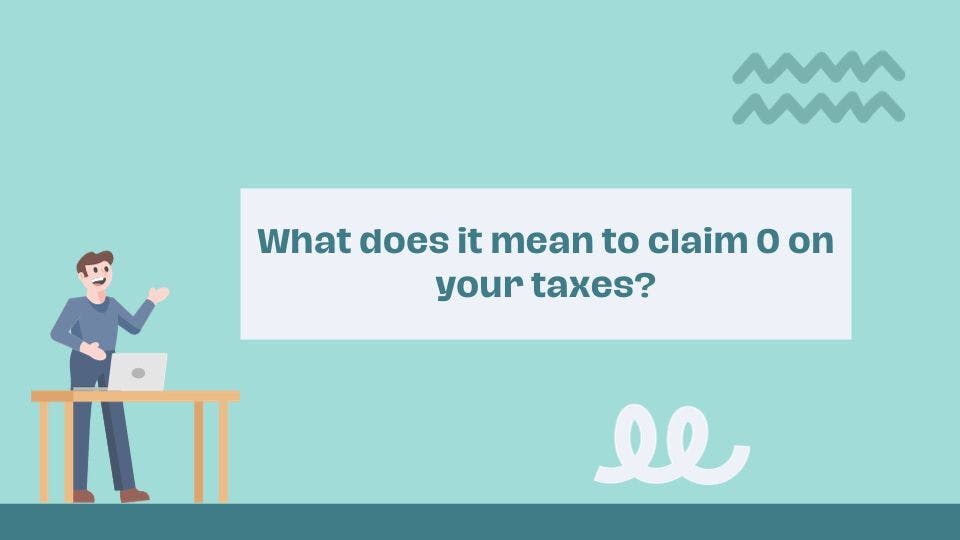
When you claim 0 on your taxes (line 5 of the W-4 form), you’ll have the most income tax withheld from your take-home pay. This is the best option for those wanting a larger tax refund.
Still, it is essential to be honest when making these claims.
Typically, people who choose zero allowance want a lump sum to use how they see fit, such as paying bills, taking a trip, or putting towards a loan.
You may also need to claim 0 on your taxes in these situations:
1. Your parents still claim you as a dependent on their taxes. Even if you’re employed, but your parents still claim you as a dependent, you may have to claim zero on your taxes since you can’t claim so yourself.
2. Other income. If you have another source of income and the tax for such isn’t withheld, it may be best to claim zero to avoid owing taxes on those situations. Examples of these are having a self-employed job, having an interest in savings, selling stocks, and earning from contract positions.
Claiming 0 on your taxes when you’re married shows that there is a sole earner in the family. For instance, you work, but your spouse only works part-time or is unemployed.
This is a good option if you want to get back a large sum of money in the form of a tax return than have additional money withheld from your paychecks.
What Is a W-4 Form?
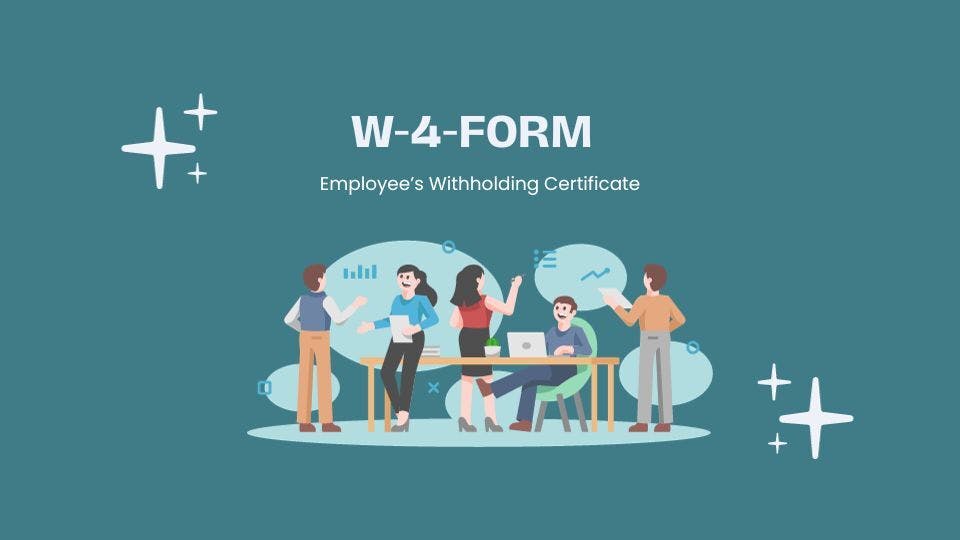
The new IRS W-4 Form, also called the Employee’s Withholding Certificate, has made filing federal income taxes easier. You don’t have to worry about inputting the right number of allowances to get more money every paycheck.
Accurately completing your W-4 form helps prevent a big balance due at tax time. It also helps you avoid overpaying taxes to bring home your money during the year.
Update your W-4 for major life events, such as marriage, losing a job, birth or adoption of a child, buying or selling a home, retirement, and bankruptcy. These are some situations that may significantly change your income and your tax filing status.
What’s the Difference Between Claiming 1 and 0?
Claiming the right allowances on your annual tax return is essential to properly withhold your taxes.
Claiming 1 lessens the taxes withheld from your weekly paychecks, allowing you to get more money every paycheck but with a smaller refund.
On the other hand, claiming 0 allowances on your taxes may be a good option if you prefer to receive a bigger lump sum of money on your tax refund. Choosing one or the other depends on your current lifestyle and preferences.
When you receive a larger tax refund, you can pay off debt, take vacations, and make big purchases.
Why Would the IRS Refund Your Withheld Tax?
Most often, the IRS refunds your withheld tax because you lack of sufficient income.
Filing Status (2023) | File a Return if Your Annual Income Was: |
Single, under 65 | $13,850 or more |
Single, 65 or older | an additional $1,500 |
Married, filing jointly, both spouses under 65 | $27,700 or more |
Married, filing jointly, one spouse 65 or older | an additional $1,850 |
Married, filing jointly, both spouses 65 or older | you both receive an additional $1,500 [2] |
What you indicate in the W-4 form will determine how much tax will be withheld from your paychecks. So, understand what suits your financial situation best: having more taxes taken out today so you owe less later or having fewer taxes taken out today and paying them later.
So, Why Do I Owe Taxes If I Claim 0?
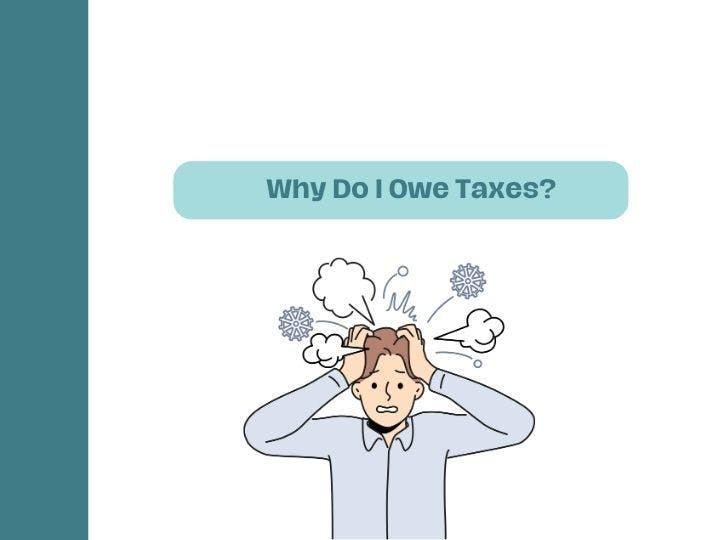
You may still owe taxes even if you claim zero allowances on your W-4 form due to the following reasons:
1. You Added “Married” To Your W4 Form
A common reason why you owe taxes if you claim zero is because you accidentally claimed “married” on your W-4 form.
In so doing, it would appear that you’re the only one who earns and your spouse doesn’t. When you begin a new job, reporting important details correctly on your W4 will lead to a more accurate tax withholding when tax season starts.
If you and your spouse earn enough to reach the 25% tax bracket, you’re not paying enough income taxes.
To solve this issue, change your status to single. If you’re married, change your and your spouse’s status to “married but withhold at a higher single tax rate.” In doing so, you will be seen under the single tax bracket rather than married.
2. The Child Tax Credit Changed
Another variable that may affect your tax due is because of the changes in the Child Tax Credit (CTC).
The Child Tax Credit is a $2,000-per-child tax benefit granted to American taxpayers with kids below 17 years old at the end of the year.
Taxpayers can claim this benefit by filing Form 1040 and attaching Schedule 8812 to their return. This tax credit is not refundable. It means taxpayers with credits exceeding their tax liability will not receive a check for the unused portion of their credit except for very low-income earners.
You can claim this tax credit for every qualifying child with a Social Security number valid for employment in the US. The dependent must:
Be under 17 years old at the end of the tax year.
Be your child, stepchild, eligible foster child, brother, sister, stepbrother, stepsister, half-brother, half-sister, or a descendant of any family member.
Be a U.S. citizen, national, or a resident alien.
Have lived with you for more than half of the year.
Not file a joint return with their spouse for the tax year or have filed only to claim a refund for estimated tax paid or withheld income tax.
Provide no more than half of their own financial support during the year.
Be properly claimed as your dependent on your taxes. [1]
3. You Get a Raise
Getting a raise and earning more is great, but it could put you in a higher tax bracket.
So, if you’ve been crushing it at work and you get a bump in pay. Consequently, you will still get a tax bill at the end of the year if you don’t adjust your tax withholding despite the change in your income.
4. Deduction and Credit Eligibility
Other changes in your filing status can also result in losing your previous tax deductions and credits. For instance, your new salary, via a new job or a promotion, may not qualify you for the Earned Income Tax Credit.
Owing Taxes Despite Claiming Zero: How to Fix This Problem
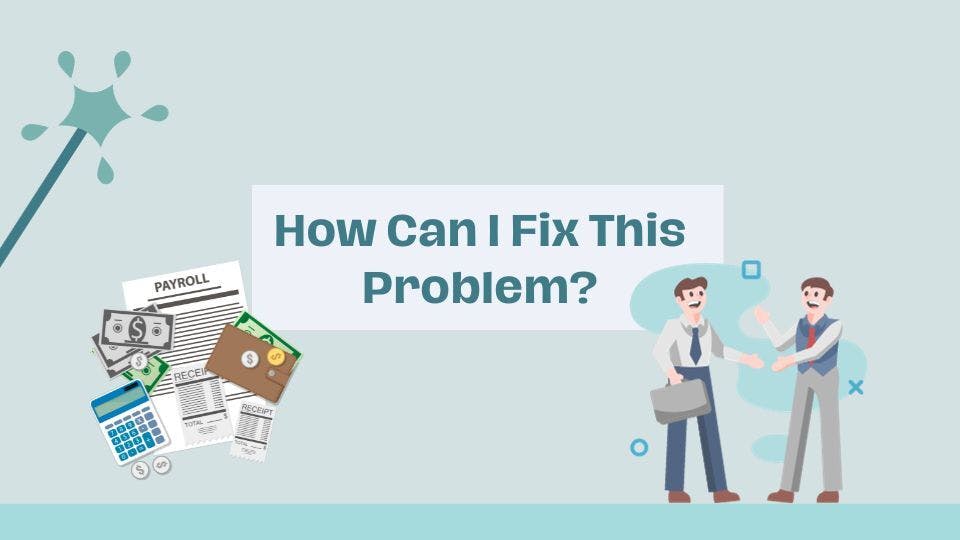
Your best solution to owe nothing on your next Federal taxes is to file a new W-4 with your employer. Request that the additional tax be withheld on Line 6 of the W-4 form.
Remember that increasing your federal income tax withholding will decrease the size of your paycheck.
Another option is to refigure your tax liability. It’s where you have to calculate your tax withholding.
First, determine the amount withheld from your paycheck. For this part, consider only your income tax and don’t include the Medicare and Social Security taxes. You can find this information on your pay stub or W-2 form.
Next, ascertain your tax liability based on how much you make and your tax bracket. If, based on your estimation, your income will not change much this year, then you can use the data on what you paid last taxing period as your reference.
Tax Planning Strategy: To Owe the IRS or Get a Refund
How do you know what’s best for your household between owing the IRS and getting a refund?
Owing taxes is the best tax planning strategy than getting a refund. It’s because when one receives a refund, in most cases, it’s nothing more than getting their money back. It’s money that the government stores or uses interest-free.
If you owe taxes, you can grow that money in an interest-accruing account and have a minimized amount you pay to the government throughout the year.
However, it may be worth letting the government hold your money if you like the feeling of getting a tax refund or have trouble saving money. In the end, there’s no single correct answer for the individual taxpayer because these tax strategies have their own pros and cons.
Hall Accounting Can Help
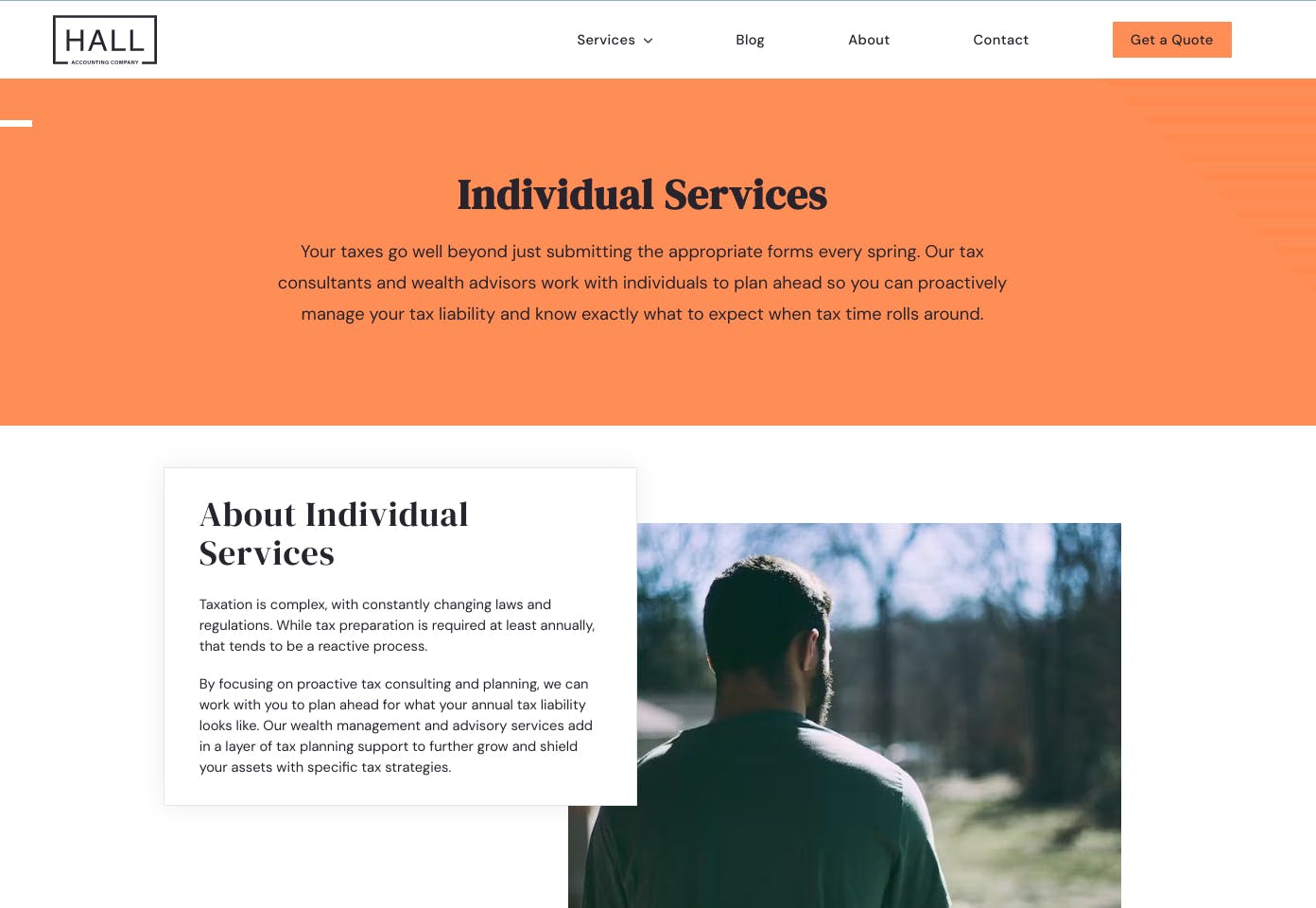
The easiest way to track your tax bill or refund and determine the itemized reasons why there are changes in your tax refund is through an accounting company or with the help of a financial professional.
Hall Accounting has a team of tax professionals who can review your taxes. They also have a team of experts you can count on to get the job done if you find yourself or your business in a tax mess.
Besides making estimated tax payments, our tax pros can help straighten out your tax situation. We can also provide custom accounting solutions to ensure timely and compliant tax filing.
Furthermore, we can help you negotiate with the IRS. Our expertise and experience allow you to proactively manage your tax and minimize current and future personal tax liabilities.
At Hall Accounting, we advise and assist our clients in tax structuring, planning, and reporting in relation to tax reliefs. We offer commercial and practical advice backed by a wide variety of knowledge on different aspects of taxation.
Our tax preparation services include, but are not limited to:
Tax Compliance
We assist in business and invidious in filing their tax returns so they can avoid incurring interest rates and penalties. Included in this service is to provide you with insights about your financial health.
Tax Resolution
Our team can resolve tax problems, even the complicated ones. We negotiate with the IRS on your behalf to resolve penalties and unpaid taxes.
Tax Consulting
You can consult us on general matters related to applying and interpreting tax legislation and local and international tax structuring. We aim to help you structure your business tax-efficiently while observing the differences in federal, state, and local laws.
State Tax Law
Our group is experienced in addressing all aspects of taxation across different states.
Whatever your accounting needs and circumstances, our experts can assist you in making informed decisions and planning effectively so you won’t miss out on significant tax planning opportunities.
People Also Ask: FAQs About Claiming 0 on Taxes

Is it better to claim 1 or 0 on your taxes?
It depends on your personal circumstances. The higher the allowance you claim on your taxes, the less tax is taken out of your paycheck every pay period. It means that choosing one than zero allowances results in less tax taken from your paycheck and sent to the IRS.
How can I avoid owing taxes?
Everyone’s tax situation is unique, but it’s possible to get a tax bill that’s closer to 0 before taxing season.
Some ways to avoid owing taxes include using a tax withholding estimator, adjusting your tax withholding, and adjusting your W-4 to compensate for underpayment or overpayment throughout the year.
These tips are especially useful for people in the gig economy, those with major life changes (marriage or a new child), or those with more than one job.
How many allowances should you claim on W-4?
This is a personal choice with no correct answer. It rather depends on your situation and your tax strategy. Generally, filers can claim between zero and three allowances.
What is the best tax withholding for a single person?
Declaring one as your tax withholding is a safe bet if you’re single and work 9 to 5 because it’s an allowance that will get you a refund.
References:
[1] https://www.irs.gov/credits-deductions/individuals/child-tax-credit